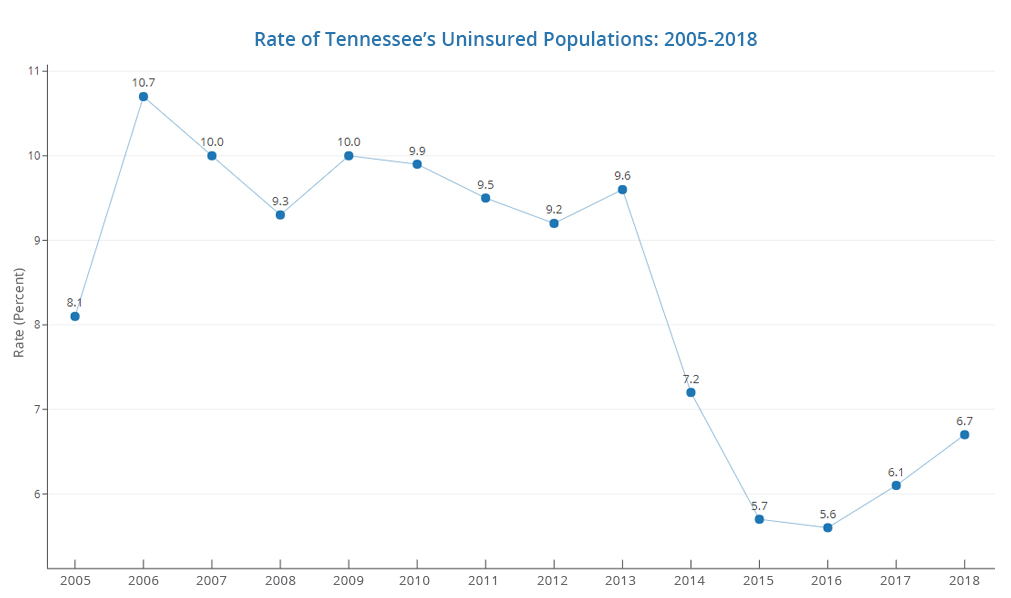Tennessee’s overall uninsured rate is now at 6.7 percent, an increase from 6.1 percent in 2017 but still well below levels before the Affordable Care Act went into effect in 2014, according to a new report released by the Boyd Center for Business and Economic Research in the University of Tennessee Knoxville’s Haslam College of Business.
The increase in Tennesseans without health insurance is consistent with nationwide trends.
The Impact of TennCare: A Survey of Recipients, 2018, authored by LeAnn Luna, economics professor, and Emily Pratt, a Boyd Center research associate, summarizes findings from a telephone survey of approximately 5,000 households conducted between May and July.
The report examines the health coverage status of Tennessee residents, collects information about the use of medical facilities and gauges satisfaction with services received.
The survey also measures the success of the TennCare program, including the overall satisfaction of TennCare members. In 2018, some 95 percent of respondents reported satisfaction with TennCare and services rendered from TennCare providers. This marks the 10th year in a row that satisfaction levels exceeded 90 percent.
“I am pleased that TennCare continues to be recognized for providing access to high quality care for our members,” said TennCare director Wendy Long. “We collaborate with our health plans to promote the delivery of the right care in the right place at the right time, and those efforts are paying off.”
Other highlights from this year’s survey:
- More respondents noted the inability to afford insurance as the major reason for not being insured, reversing a downward trend since 2014. An increasing number of households of all income levels reported “cannot afford” as a major reason.
- Approximately 75 percent of TennCare members obtained a doctor’s appointment within a week, and 47 percent obtained an appointment within one day, marking record highs for both measures. Only 11 percent reported waiting more than three weeks for an appointment, a record low.
- Ninety-two percent of all TennCare heads of household reported seeking care first at a doctor’s office or clinic instead of going to the emergency room, while 95 percent of heads of household statewide reported the same behavior.
The Boyd Center has conducted the survey since 1993 under contract with the Tennessee Department of Finance and Administration.

—
CONTACT:
Erin Hatfield (865-974-6086, ehatfie1@utk.edu)
LeAnn Luna (865-974-6080, leann@utk.edu)
Related News
UT Haslam Economics Expert Addresses Ramifications of Recent IRS Staff Cuts
Don Bruce, Boyd Distinguished Professor, recently addressed the logic of the force reduction, implications for taxpayers and more.
Read ArticleUT Study Finds Tax Cuts, Inflation Control Top Priorities for Tennessee Business Leaders
Tennessee business leaders are more concerned with tax cuts and inflation control, focusing on economic stability and growth over other...
Read ArticleStudy Shows Record High Satisfaction Among TennCare Enrollees
A study from UT Haslam's Boyd Center shows 96% of TennCare enrollees are satisfied or very satisfied with the program.
Read ArticleBoyd Center Report Shows Tennessee’s Economy to Surpass U.S. Growth in 2025
According to Haslam's Boyd Center, Tennessee's economic growth will outpace the rest of the U.S. in 2025.
Read Article
